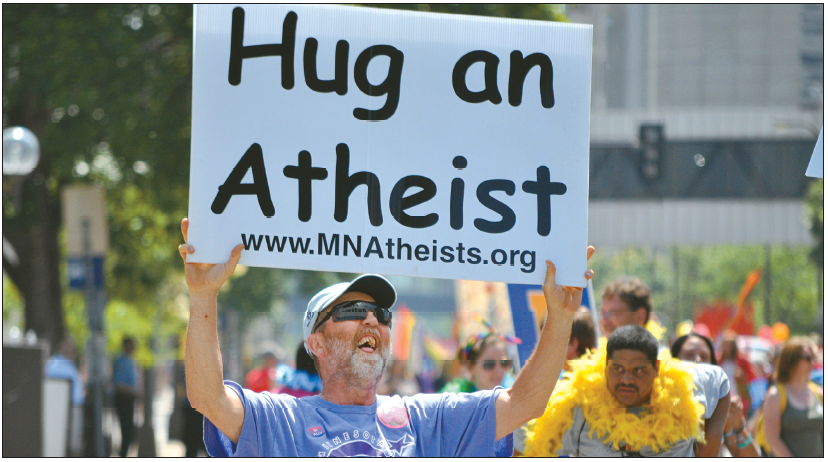“Not all nonreligious people are the same.” That’s the conclusion of Ryan Burge, a political science professor at Eastern Illinois University, whose recent study redefines how scholars view the so-called “nones.”

In his latest Nones Project report released on the 25th of last month, Burge divided nonreligious Americans into four groups: those who are “nonreligious in name only,” the “spiritual but not religious,” those who have “completely left religion,” and a small but vocal group he calls “Zealous Atheists.”
According to Burge, about 11% of nonreligious adults fall into this last category — a minority that actively challenges religious belief. These individuals not only reject faith but also try to persuade others to do the same, particularly on social media platforms such as Reddit, where they frequently mock religion with phrases like “Sky Daddy” or “fairy-tale beliefs.”
Burge explained that these individuals show “an active effort to change others’ faith, not just disbelief.”
His research team found that roughly 10% of respondents admitted trying to convince someone to leave religion within the past year. Most of those persuaders turned out to be “Zealous Atheists,” supporting Burge’s view that this subgroup plays a disproportionate role in public debates about religion.
Interestingly, their rejection of faith is not complete. About 20% of Zealous Atheists still attend a religious service at least once a year, the second-highest rate among the four groups. While 56% never pray, about 12% said they occasionally do — suggesting that their detachment from religion isn’t absolute.
By contrast, those who have “completely left religion” show total disengagement — no prayer, no worship, and little interest in spiritual conversation. Burge describes the difference between the two groups as “fatigue versus fight”: the former are tired of religious debate, while the latter still engage in it passionately.
He noted that “those who have completely left religion once discussed faith and the meaning of God but now prefer to live their own way without being drawn back into it.”
Demographically, the Zealous Atheists are the youngest among nonreligious groups. About 70% are between 18 and 45, and nearly half are under 35, compared with just 12% aged 65 or older. Those who have fully left religion, on the other hand, are largely older adults, with seniors making up more than one-third of that category.
Burge interprets this generational divide as a sign of shifting energy within nonreligious communities. “Older nonbelievers are exhausted by the debate,” he said. “Younger ones still have the passion to challenge and change the world.”
Despite their strong online presence, Burge emphasized that Zealous Atheists represent only about 3% of all Americans, cautioning that “a loud minority doesn’t speak for everyone.” Most nonreligious people, he said, hold neutral or even positive views toward religion and do not harbor hostility toward believers.
“The loudest voices don’t define the movement,” Burge concluded. “Many nonreligious people simply live without faith — and that deserves attention too.”



